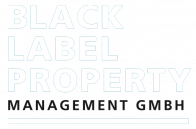Overview of the rights and obligations of the administrator
Anyone who owns a flat in a community of owners knows that the management of a condominium plays a central role in maintaining the value, order and daily functioning of the community. But the question arises time and again: What powers does the condominium management actually have - and where are its limits?
In this article, we shed light on what an administrator may decide independently in the context of condominium management and which decisions must be made by the owners.
Legal framework: Section 27 WEG - The duties of the WEG administrator
The activities of a condominium administrator are regulated by law in the German Condominium Act (WEG). In particular, Section 27 WEG describes which rights and obligations the administrator may fulfil on behalf of the homeowners' association. The administrator is therefore not only a service provider, but also the legal representative of the community - but only within clearly defined limits.
The WEG management can take on these tasks independently
The administrator may, within the scope of the so-called proper administration act independently. This includes above all
- Initiating minor maintenance measures on the common property
- Carrying out ongoing accounting and payment processing
- Conclusion and cancellation of standard contractse.g. with cleaning services or energy suppliers
- Regular maintenance workthe heating system, for example
- Immediate measures in an emergencye.g. in the event of a burst water pipe or power failure
These tasks are part of the day-to-day management of the condominium and do not have to be decided in advance by the community of owners.
Nothing works without a resolution: Where the limits of WEG management lie
Major or fundamental decisions may not be taken without the prior consent of the community of owners. This includes
- Major maintenance or modernisation measurese.g. roof or façade renovation
- Commissioning of expensive external service providersthat significantly exceed the current budget
- Introduction of new house rules or changes to the community rules
- Sale or encumbrance of jointly owned property
- Introduction of special levies or increase in house charges
Here is a Resolution at the owners' meeting required - the management is obliged to abide by the vote of the owners.
The role of the administrator: representative, not decision-maker
The condominium management acts on behalf of the homeowners' association - not on its own initiative. A good manager is characterised by the fact that he communicates transparently, provides information in good time and fulfils his role as a neutral representative of all owners understands.
Administrators are not decision-makers in the traditional sense, but Organisers, implementers and mediators - especially in the case of divergent interests within the community.
What happens if competences are exceeded?
If the condominium management makes unauthorised decisions that should actually be made by the owners' meeting, this can have serious consequences:
- The measure can declared invalid become
- Owners can Claim damages
- The community can be informed about the Dismissal of the administrator decide
It is therefore in the interests of all parties involved that the administrator not only acts in a legally correct manner, but also with sensitivity.
Conclusion: Clear rules for a functioning WEG administration
The condominium administration is a central authority within every community of owners - but it always acts within the framework of community decisions. Owners who know their rights and play an active role help to ensure that the management and community work well together.
Trust is created where expertise, transparency and communication come together.

